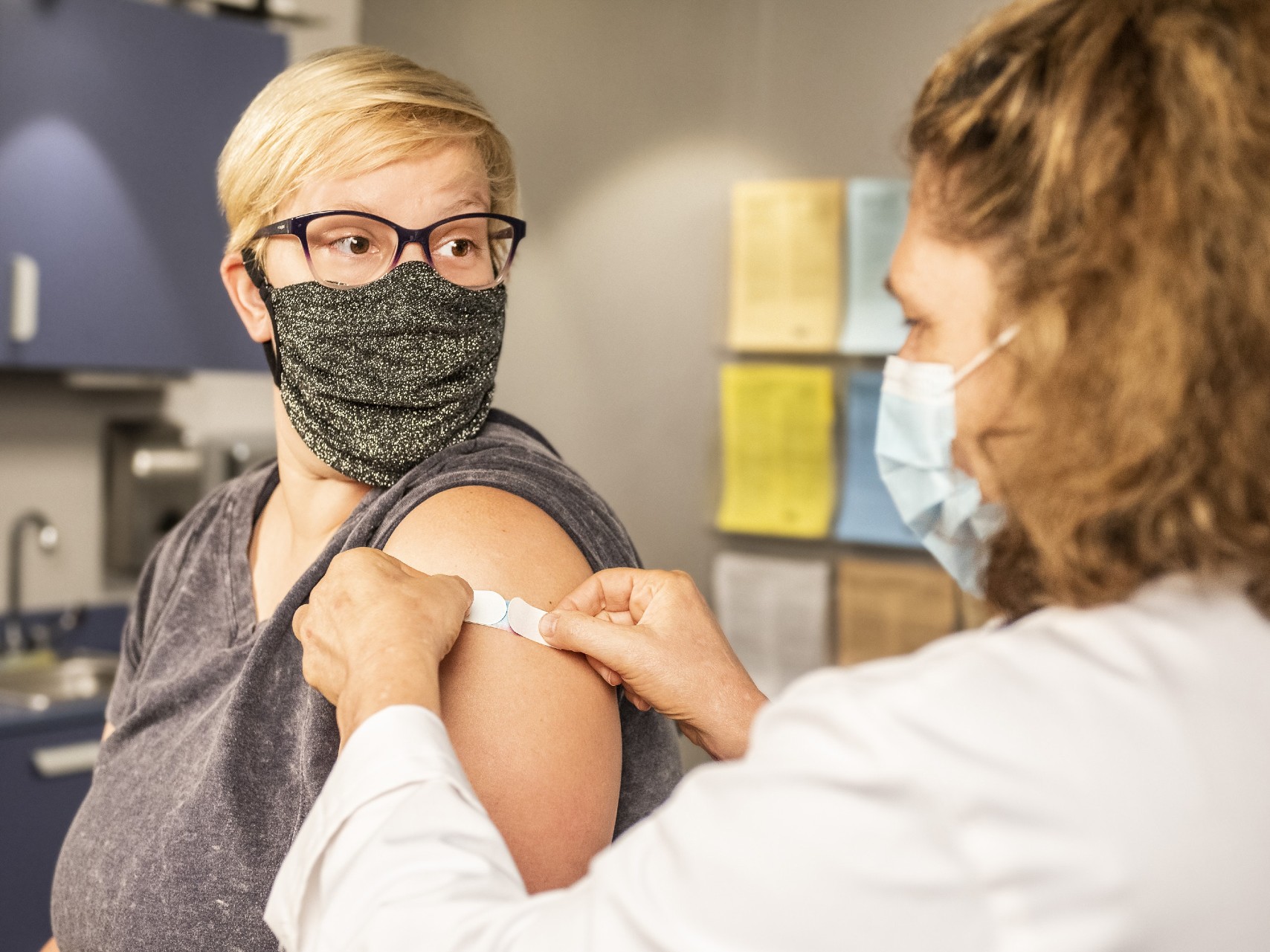

After more than a year of lockdown, mask-wearing, and social distancing, an end is in sight: President Joe Biden announced this month that the country expects to have enough doses of the COVID-19 vaccines to inoculate every adult in the country by the end of May. That means that, over the next six months or so, everybody who wants one—including young, healthy people—can expect to get their shot. Great news, sure, but it’s also ushering Americans into a new phase of uncertainty about what’s safe to do and what’s still considered risky. The CDC released guidance this week for fully vaccinated people with some important guidelines, but there’s a lot we still don’t know for sure.
The guidelines “offer an important piece of clarity for people who are vaccinated,” says Asaf Bitton, a physician and professor of medicine at Harvard University. That’s especially true for how fully vaccinated people should behave near one another or near unvaccinated people, he says.
Visits between households of fully vaccinated people “are likely low risk,” the new CDC guidelines state. “For example, if you are fully vaccinated, it is likely a low risk for you to invite other fully vaccinated friends to dinner inside your private residence.”
Things get a little more complex when the guidelines look at interactions between vaccinated and unvaccinated people. The basic rule is to think about the health characteristics of the unvaccinated group of people and how best to protect them, something this CDC infographic might help with.
In these guidelines, says Bitton, “the evidence has been summarized, but it hasn’t changed.” There are still substantial uncertainties about whether being vaccinated reduces transmission, or whether the new COVID-19 variants might change how well vaccines work. These guidelines, which couch everything in terms of likelihood, do a good job of summarizing everything in terms of relative risk, he says.
“I think people really need to center in their minds that we’re not 100 percent sure that being vaccinated reduces transmission,” he says. “Anyone who is saying that they have lots of certainty about this is I think not showing the levels of uncertainty that we have with the data.”
The CDC guidelines go beyond small gatherings and state that everyone should avoid medium- to large-sized gatherings and stay clear of public social settings like indoor dining and the gym. If you are fully vaccinated and have waited the two weeks necessary to build immunity, but you choose to go to those settings, the CDC—and Bitton—say you should do the same things we’ve been doing for a year now to prevent transmission.
“I’m a realist,” says Bitton. “Being in primary care, you learn just to roll with what people are going to do. Your job is to… help people make slightly better choices more of the time.” There is a spectrum of safety mechanisms, he says, and the more of them you can layer in place, the safer you are. “We have vaccines, masks, distancing, ventilation, and personal hygiene in terms of washing hands,” he says. In that order of importance, trying to introduce as many safety measures as possible into each and every interaction you have is the best chance you have of keeping yourself and others safe. (If you want to know more about how to protect yourself and others, check out this article.)
Be prepared for the CDC’s guidelines on what’s safe to change over time as more people get vaccinated and we learn more about the vaccines and the virus. And, when your turn comes, get vaccinated. “The reason for all people to get vaccines is that the risk of hospitalization or death from COVID once you’re vaccinated goes down by incredible amounts,” says Bitton. While the three vaccines currently authorized by the FDA—Pfizer’s, Moderna’s, and Johson & Johnson’s—offer different levels of overall immunity, they all reduce the risk of severe disease by more than 80 percent.
Getting vaccinated will protect you from the worst consequences of COVID-19, and helps slow the disease’s spread by giving it fewer opportunities to replicate inside you, even if you get infected. Of course, no vaccine can absolutely, one-hundred-percent guarantee that nobody who gets it will still get sick enough to end up in the hospital or even die. That’s one of the reasons why it’s so important to keep paying attention to what you’re doing, even after vaccination.
